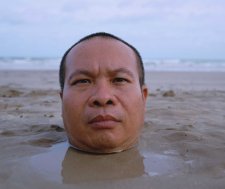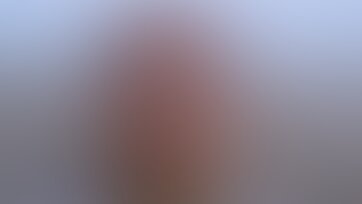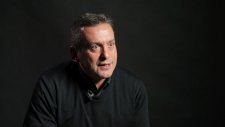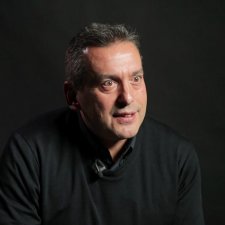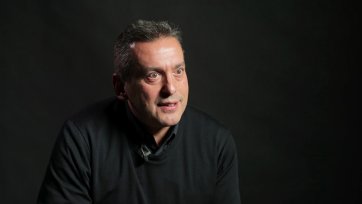- When I look back on it now, I had an absolutely magical childhood, I think. I grew up in inner city Melbourne. At 13, I moved high school from a very migrant area to, at that time, quite Anglo-Celtic. And it was also around the time that I was becoming aware that I was homosexual, though I definitely wouldn't have articulated it as such at 13. And so, that kind of sense of, where do I belong, and how do I make sense of these conflicting identities, to do with being a migrant child, being a gay man, or a gay youth, they fed into my writing, and the way that it happened was through falling in love with books. It was books, and it was cinema, that gave me a way of understanding who I was and how it was in the world. Adolescence was really difficult, adolescence was a real struggle, and adolescence was where I realised that I had this huge rage. Rage about the world, rage about my own body, rage that I felt like I had been given this, dealt a bad hand, you know, in terms of trying to reconcile sexuality and masculinity. Where I was really fortunate is that I discovered literature, and I discovered art, and then, this yearning, that's what it felt like, just this need to write, and I think, it's in my work that I was able to put that rage. Years ago, a friend of mine sent me a book to read by the American writer Tobias Wolff. I always talk about this because it was like a turning point for me, and he wrote a memoir called "In Pharaoh's Army." and he says in that book, "when I started writing, learning to write saved my life." And as soon as I read that, that made complete sense to me. I think there's that really incredibly formative time when you're in adolescence to young adulthood, and the books you read and the films you see and the artworks you see, they just stay with you. They become the seeds of really your own work. So many of the writers that I loved, like Norman Mailer and Philip Roth, they themselves were children or grandchildren of immigrants, and I think they captured part of an experience I was hungry to read about. I was also really lucky, I had a very wonderful English teacher, an English literature teacher in high school, and I really think those teachers make a difference. His name was Mr. Havia. He grasped that I loved books, and he introduced me to European literature. I'm very very grateful to him for that introduction to that world.
There's that very very pivotal adolescent, young adult experience of the world, and that's always gonna be part of my writing, of what my influences are. I think the other thing, and it's not only an Australian experience, I've talked to people who are the children of migrants across the globe, and there's this certain sense that you have of a responsibility, because you know where your folks came from. And largely, migrants come, I mean they make that huge journey, they put themselves in the situation of exile, in a place where they don't know the language, they don't know anyone, they're separated from family and nation. All that experience, the fact that they dedicated themselves to their children, that their children would have an education, would have a life that was not possible for them. There's a certain responsibility you feel. When I was younger, that responsibility felt like an absolute burden, because I thought I would never be able to live a life that would honour that experience. And there was that part of, to become my own person, to choose a life that I wanted to commit to, felt like I was betraying their dreams. But the older I get, and I think that trajectory is there in my writing, I feel less that it's a burden and more that it's a gift. I think having that realisation of responsibility is quite important.
